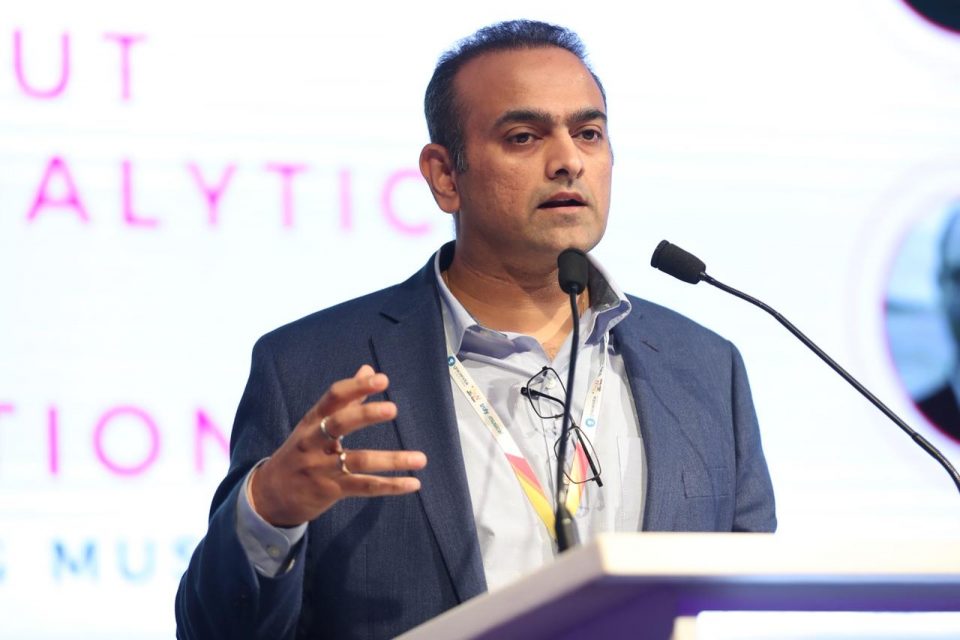We Do Need An Education: Mumbai University and The Dharavi Project Now Offer Hip-Hop Course!
The 15-week certificate course combines theory and practical lessons, includes student exchange programs and more

Students from the Dharavi Project with Dolly Rateshwar [center] and Professor Sanjay Ranade from Mumbai University.
The roots of any kind of hip-hop are almost always found in the least privileged spaces. In the two years that Dolly Rateshwar has been running The Dharavi Project, a music and dance school to equip the underprivileged youth of Dharavi, she’s tackled everything from substance abuse to domestic violence among them. In the initial months, when the school operated out of rented classrooms that were not gated, non-students and adults would often be found drinking and doing narcotics.
“So we moved to an enclosed space””we now had four class rooms, one in which we teach beat boxing, rap classes, graffiti artwork and b-boying,” says Rateshwar, whose fight to legitimize hip-hop as a tool for social change experienced one of its biggest victories last week when The Dharavi Project announced their collaboration with the Mumbai University (MU) to offer students a hip-hop certification course.
The association with the university came about after Professor Yatindra Ingle from MU, a rapper and b-boy dancer himself, got in touch with the Dharavi Project while working on a research paper. “When Yatin came up with the idea of initiating a hip-hop certificate course in the university, we decided to do it together.” The mission for both the MU and Dharavi Project is the same: to get people interested in hip-hop to sink their teeth into the historic and social roots of the genre.
Given the unprecedented nature of this course, the two collaborators spent the last three months designing and structuring the course. Their own areas of involvement too have been defined: the university will take care of the theory aspect of the course while the Dharavi Project will handle the practical side of things. The 15-week certification course will operate over the weekends and also include student exchange programs (in which three students from the Dharavi Project will be given a scholarship to enroll at the university and vice versa); the university will charge a fee of Rs. 5000 to students applying for admission and the minimum educational eligibility is 12th pass. There will be 20 students per batch at the university and one of the topics they will be taught in the theory classes is Women in Hip-Hop.
Rateshwar considers the course a big win for local hip-hop simply because the latter’s genesis and growth have a stamp of acknowledgement from a credible source like the MU.
While the MU is charging an admission fee to those entering the course, students from the Dharavi Project won’t have to pay. Rateshwar explains, “At the Dharavi Project, they can access the university without this criteria of 12th pass.” She adds, “Our motive and vision is to empower the kids for free.” The Dharavi Project was launched in 2015 and is a joint CSR initiative of Qyuki Digital Media and Universal Music Group.

Samir Bangara, Co-Founder and MD at Qyuki.
Ask Samir Bangara, Co-Founder and MD at Qyuki, why he wanted to fund the project and he says, “It felt really good to help these kids and give them a space.” Bangara tells us that he was pleasantly surprised when the university considered having a course on hip-hop. “I would have thought that this would have happened several years down the line.” Bangara adds that the course takes care of a certain aspect of “parental management” too–this collaboration shows parents that the Dharavi Project is not wasting anybody’s time and is legitimizing hip-hop. He says, “Their parents will allow them [the students] to follow their passion.”
The focus right now for Bangara is to replicate the Dharavi model in other places around the country. “Let’s not fool ourselves, this is not polished talent and it will take a lot of time and effort to create one breakout hit out of this,” he says, adding. “Step one is giving them a platform to express their natural art form that they have gravitated towards and taking it outside Dharavi and other places in Mumbai.” The need for making the project self-sustainable is also on the agenda by providing the students the opportunities to perform at events and facilitating brand tie ups.
Rateshwar, on her part, is hoping that this collaboration will result in the creation of least one full-fledged hip-hop star, someone who is not only abundantly talented but also academically knowledgeable. Also in the pipeline are international exchange programmes. “We have only just begun!” she says.





